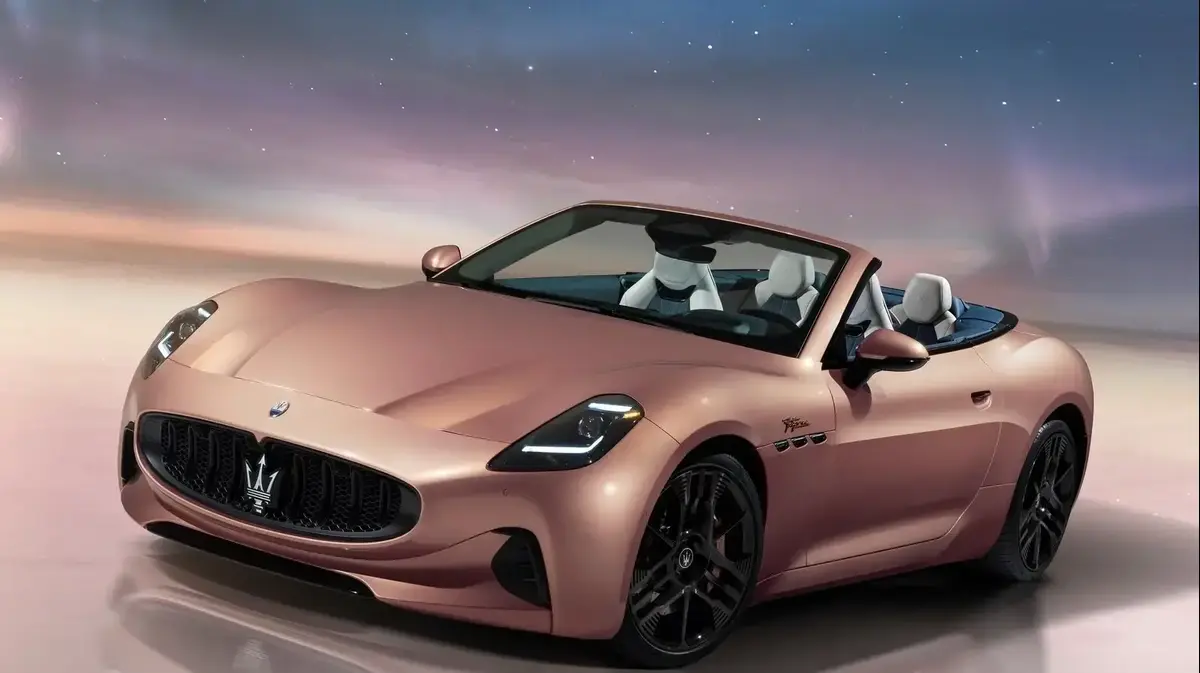Enlarge image
The world's largest lithium reserves are stored in the Salar de Uyuni salt lake in Bolivia: "Recycling will make great strides - but not enough," believes expert Wolfgang Bernhart
Photo: O Neil Castro / Design Pics / imago images
manager magazin:
Mr. Bernhart, we are currently experiencing the great electro euphoria.
In Germany, the proportion of electric cars sold is currently around ten percent.
Manufacturers are making promises about how quickly they will replace petrol and diesel with batteries.
How sustainable is this trend?
Wolfgang Bernhart:
The trend will remain.
Plug-in hybrids included in Germany are already 20 percent.
Electric cars will get cheaper, customers will eventually buy without government funding, and manufacturers will continue to accelerate their plans.
But the announced electrical components are already very ambitious.
To person
Photo: Axel Martens / Agentur Focus / Roland Berger
The management consultancy Roland Berger and the Aachen institute fka have been developing the electromobility index since 2013. Where they initially saw Japan as a technical and market leader, today, despite Tesla, China and Germany dominate.
Berger consultant
Wolfgang Bernhart
(57)
has been there from the start - and warns of too much euphoria despite the current high spirits among all electric vehicle enthusiasts.
manager magazin:
VW is planning towards 70 percent electric for 2030, at least in Europe.
BMW is aiming for an electric share of 50 percent, other brands - such as Jaguar - should then only be electric.
Will customers really swear off the combustion engine that quickly?
Bernhart:
That is very difficult to assess and it depends on many factors.
The targeted pace of the technology change is so fast that there will always be problems.
But one thing is clear: if the manufacturers want to meet their CO2 targets in Europe, they have to come up with electricity shares of around 50 percent.
manager magazin:
Where do you see the problems?
So far, the sluggish battery supply in particular has resulted in long waiting times.
Volkswagen has now announced that it will build a network of six gigafactories for battery cells in Europe by 2030.
Bernhart:
Only those who properly secure the supply of battery cells will be able to deliver the necessary sales figures.
It doesn't matter whether he allies himself with partners or tackles the matter alone.
Therefore: It is exactly right to build such a network.
But these works do not yet exist.
If demand continues to rise rapidly, there will be bottlenecks again.
This applies to the necessary experts who have to get the plants up and running.
That applies to the necessary machines.
But this is especially true for the raw materials that you need for the battery cells.
manager magazin:
All car manufacturers assure that they keep an eye on raw materials.
Bernhart:
They certainly have, at least most of them.
But they haven't solved it yet.
Battery cell plants with a capacity of more than 2000 gigawatt hours have been announced for 2030.
For example, where the lithium for all these battery cells is supposed to come from is not clear to me.
manager magazin:
New mines are currently being developed, recycling is making progress ...
Bernhart:
Recycling will bring great progress, that's right.
But that won't be enough to produce the necessary amounts of lithium.
Take another example: copper.
We will probably need an additional two to three million tonnes of this in the future if electromobility prevails as announced by the manufacturers.
manager magazin:
Where is the copper used?
Bernhart:
Among other things, for the electric motors and batteries, but also for wind turbines to increase the share of renewable energies.
With one million tons of recycled copper today, you won't get very far.
And the price of copper is already rising significantly, as is the price of the lithium required for battery cells, by the way.
manager magazin:
Lithium mining is even being examined in Spain and Germany.
Is not that enough?
Bernhart:
In the case of most of the lithium mines that are currently being developed, it is neither clear the quantities of lithium that could be extracted there, nor is it clear whether they can be mined at reasonable costs.
And the same applies to other raw materials;
there will also be huge bottlenecks in nickel.
manager magazin:
What is the conclusion from that?
Electromobility is not working as planned?
Bernhart:
The conclusion from this is that manufacturers have to approach the issue holistically, and quickly.
Otherwise they become very dependent very quickly.
manager magazin:
BMW and Volkswagen, for example, emphasize that they have long been thinking holistically, from raw materials to recycling.
Volkswagen wants to make itself more independent of the large Korean and Chinese cell manufacturers.
Don't you believe in it?
Bernhart:
Yes, that's the right way.
It just has to be implemented very quickly.
Chinese and Korean cell manufacturers want to invest heavily in Indonesia in order to build up a complete value chain for cell material there.
manager magazin:
The German company BASF, which produces cathode material for battery cells on a large scale and is building a production facility in Schwarzheide, Brandenburg, is planning something similar with a subsidiary.
Bernhart:
Yes, a lot is happening there;
and as a car manufacturer, you can't miss the train.
Companies really need to secure the entire supply chain;
otherwise they will have a problem.
manager magazin:
China has always been the big driver of electromobility. Was that a little premature?
The prognoses there are now at an electrical share of around 15 percent for 2025;
more is expected for Europe.
Bernhart:
That wasn't premature.
In Europe, too, the forecast figures must first be achieved.
And don't forget that the Chinese government is multi-pronged.
Their electric offensive applies above all to the large cities that are particularly hard hit by nitrogen oxide emissions.
But they won't stop the sale of combustion engines there.
The Chinese manufacturers are supposed to continue to export these cars to emerging countries.
manager magazin:
Some observers are already expecting the Chinese government to change direction;
back to the combustion engine and to the fuel cell.
Bernhart:
I don't think so.
Politicians there will not change course significantly in the next few years.
She also has no reason to.
By far the largest number of electric cars are still being built and sold in China; Chinese manufacturers are more competitive with their electric models than with combustion engines.
And the fuel cell will initially be tested there for commercial vehicles;
just like in Europe.
manager magazin:
In your electromobility index, you rate Chinese industry in second place in terms of technology;
ahead of the USA with Tesla, ahead of Germany with Volkswagen, BMW and BASF.
Where does this high rating come from?
more on the subject
By 2025: EU wants to produce batteries for seven million electric cars annually
Manufacturers are working on a new automotive standard: electric beats combustion by Martin Wittler and Jürgen Pander
Bernhart:
We are guided by "Value for Money";
who offers affordable technology.
And the Chinese car and cell manufacturers are further ahead than many think.
manager magazin:
The European car manufacturers were also able to offer a decent price-performance ratio last year.
Thanks to government subsidies in many countries, they have achieved the European Union's CO2 targets.
Will that work again in 2021?
Bernhart:
I think so.
In 2020, of course, it helped that many electric cars were ordered before the outbreak of the pandemic;
and that the proportion of all-electric models and plug-in hybrids has also increased due to the slump in combustion engines.
manager magazin:
It shouldn't have the same effect again;
and the EU targets are a little stricter again in 2021.
Bernhart:
But there are still many new electric vehicles coming onto the market;
The ranges of the cars are also increasing.
As long as there are no massive production problems or battery cells are missing again, the CO2 targets should not become a problem for most manufacturers in 2021.
manager magazin:
You have been observing the electromobility market for more than a decade, and you also regularly present your index.
What was the biggest surprise during that time?
The sudden sudden upswing last?
Bernhart:
No, the biggest surprise for me was how quickly the batteries got cheaper.
Ten years ago, they cost around 1,000 euros per kilowatt hour.
It was clear that the price would drop quickly.
But a few years ago I would not have thought that we would come under 100 euros.
manager magazin:
And now there is talk of 50 to 60 euros per kilowatt hour in the next few years.
Do you think that is realistic?
Bernhart:
Yes, if the cell chemistry switches to lithium iron phosphate, that will be possible.
And then the cars will also be cheaper again.
The big unknown is always hidden, of course: the rise in the price of raw materials.










